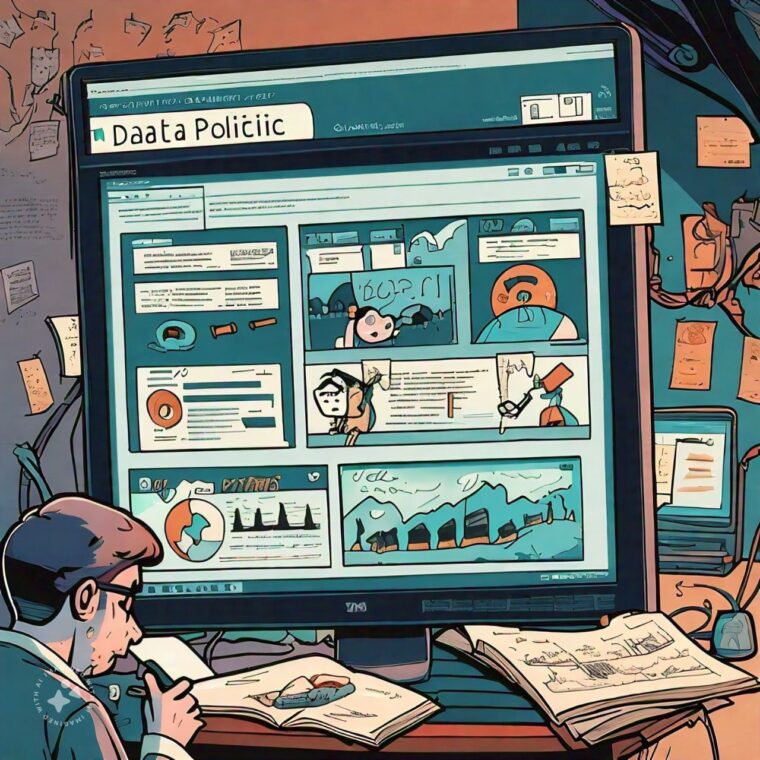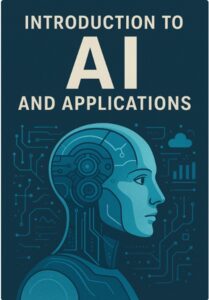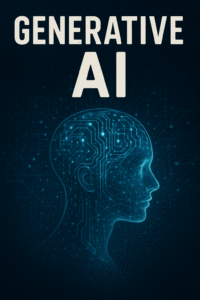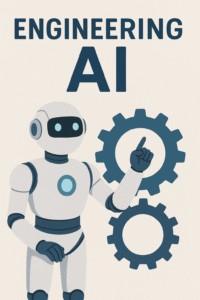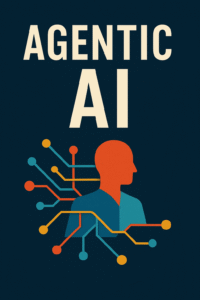Have you ever wondered how the information you share online or on your phone is used? Well, that’s what “Data Politics” is all about! It’s a big term, but let’s break it down so it’s easy to understand.
What is Data?
First, let’s talk about “data.” Data is any kind of information. It could be your name, your favorite color, the games you play, or even the pictures you take. Every time you use the internet, send a message, or even just walk around with your phone in your pocket, you create data!
Who Collects Data?
Now, who collects this data? Many people and companies do. For example:
- Apps on Your Phone: Games, social media, and other apps often collect data about what you like and do.
- Websites: When you visit a website, it might collect data about your visit, like how long you stayed or what you clicked on.
- Governments: Sometimes, the government collects data to help keep everyone safe or to plan for the future.
Why is Data Collected?
So, why do people want this data? There are a few reasons:
- To Make Things Better: Companies use data to make better games, apps, or products that people like.
- To Sell Things: Sometimes, data is used to show you ads for things you might want to buy.
- To Keep You Safe: Governments might use data to make sure everyone is safe and healthy.
The Power of Data
Here’s where “Data Politics” comes in. Because data is so valuable, it gives a lot of power to those who have it. Imagine if someone knew everything about what you like and do—they could try to sell you things, tell you what to believe, or even try to change your mind about something important.
This is why data can be powerful, and why it’s important to think about who has your data and what they’re doing with it.
What Can We Do?
Even though data is powerful, there are things we can do to stay safe:
- Be Careful What You Share: Think before you share personal information online.
- Ask Questions: If you’re not sure why someone wants your data, it’s okay to ask!
- Use Privacy Settings: Many apps and websites have settings that let you control what data they collect.
Key Aspects of Data Politics:
Data politics refers to the ways in which data is generated, managed, controlled, and used within societal, economic, and political contexts. It involves the power dynamics, ethical considerations, and decision-making processes surrounding data. Here are some key aspects of data politics:
- Power and Control: Who has the power to collect, store, and use data? Governments, corporations, and other institutions often have significant control over data, which can influence how information is used and who benefits from it.
- Privacy and Surveillance: Data politics involves debates about privacy rights and the extent to which individuals are monitored. Surveillance technologies, like facial recognition or social media tracking, raise questions about the balance between security and personal freedom.
- Access and Inequality: Not everyone has equal access to data or the tools needed to analyze it. This can lead to inequalities in who benefits from data and who is marginalized. For example, big tech companies may have access to vast amounts of data, giving them an advantage over smaller competitors or the public.
- Data Ownership: Who owns the data? This is a critical question in data politics. Individuals often generate data through their online activities, but companies may claim ownership, leading to debates over who should control and profit from this data.
- Ethical Concerns: The use of data in decision-making, such as in algorithms or AI, raises ethical questions. These include concerns about bias, discrimination, and the potential for data to reinforce existing social inequalities.
- Transparency and Accountability: Data politics also involves the need for transparency in how data is collected, processed, and used. Organizations are increasingly being held accountable for how they manage data, particularly in cases of data breaches or misuse.
- Policy and Regulation: Governments and international bodies create laws and regulations that govern data usage. These policies can have significant implications for privacy, security, and the free flow of information across borders.
Conclusion
Data politics is all about how data is collected, who controls it, and what it’s used for. By understanding how data works and being careful with what we share, we can help protect ourselves and our information.
In essence, data politics is about the complex interactions between technology, power, and society, and it plays a crucial role in shaping the digital world we live in.
Remember, data can be helpful, but it’s important to keep it safe and use it wisely!

